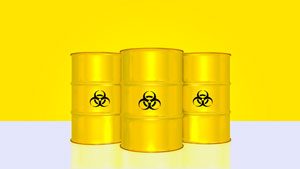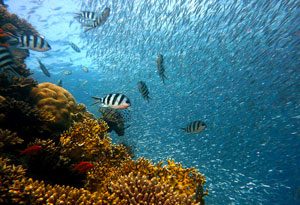Impossible to deny that we live in a competitive world. Global companies fuel their growth by hiring marketers to sell us the idea that we constantly need to buy new products to look and feel better about ourselves.
I am in favor of personal development, but before using this new hairspray or this new body lotion, do we know the real contents of all these products? What impact will they have on our personal health and that of the environment? If you're like most of us, the answer is that we know little. Which is not surprising. Big companies are rarely transparent about these issues and their focus is on how much money they can make, not what the environmental impact of their production will be.
I hope this blog post sheds some light on this sensitive issue, and hopefully inspires you to find healthy and balanced solutions between personal beauty and the preservation of our environment.
The sad truth is that common beauty products all contain harmful toxins. Government regulations do not adequately control the labeling of these companies' mass products even if they contain chemical ingredients. When we apply them to our body, they will of course be absorbed and have a negative impact on our health and our environment.

Titanium dioxide is a chemical ingredient frequently found in makeup and sunscreens. When this ingredient returns to our waters, it harms the growth of phytoplankton. In a balanced ecosystem, phytoplankton provide food for a wide variety of sea creatures, including whales, shrimp, snails and jellyfish. Phytoplankton isn't just an aquatic snack, it also contributes two-thirds of our planet's atmospheric oxygen production. As phytoplankton growth continues to decline, oxygen depletion would not only cause our marine life to suffocate, eventually all humans and animals will suffer from oxygen depletion.

SSL stands for Sodium Lauryl Sulfate and it is one of the key ingredients in the majority of shampoos. It is the ingredient responsible for the foaming effect that we associate with cleanliness. To the delight of manufacturers, SSL is very cost effective, but in order to meet high consumer demand, massive deforestation is taking place. SSL is derived from palm oil trees found in Malaysia and Indonesia. These rainforests are home to valuable wildlife like tigers, rhinos and orangutans. Deforestation has landed all of these species and many more on the endangered species list. Is our shampoo really worth the disappearance of valuable animal species?
Silicones are found in most mass-produced hair products. They contribute to the shine and manageability of the hair. However, studies have shown that these silicones reach our environment. In 2005, the Norwegian Air Research Institute and the Swedish Environmental Research Institute reported the presence of high concentrations of silicones in air samples taken from several locations in the Nordic countries, in addition , the presence of these silicones in our fish. Other studies have found that siloxanes accumulate in aquatic life in northern lakes. Would you like to eat fish contaminated with silicone? Surely not desirable!

This is just a glimpse of the damage we cause to ourselves and our vast planet, all in the name of beauty. The good news is that we now have the privilege of accessing a multitude of natural beauty products that do not contain these harmful chemical ingredients and which perfectly meet all our aesthetic needs. Do some research before buying your next products and try to limit your impact on the environment by buying eco-friendly products. Crüe Cosmetics' use of 100% organic ingredients is our first step towards a better world where beauty products are free of chemical ingredients! We always appreciate your feedback.



